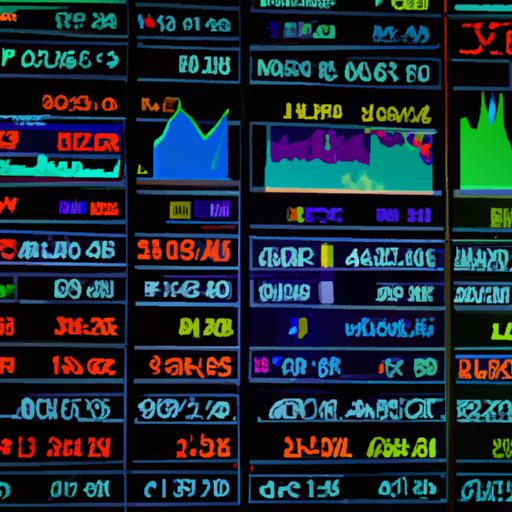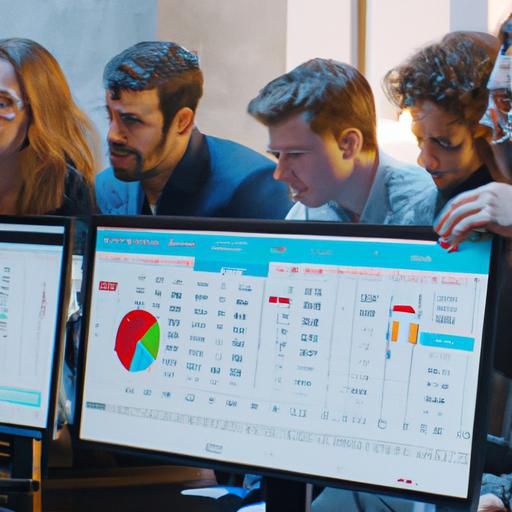What is Trading: Exploring the Key Concepts and Significance

Introduction
In the vast realm of finance, the concept of trading stands as a fundamental pillar that drives the global economy. But what exactly is trading? At its core, trading refers to the buying and selling of financial assets such as stocks, currencies, and commodities with the aim of making a profit. It involves the exchange of goods or services between parties, each seeking to benefit from the transaction in some way.
The importance of trading in the financial market cannot be overstated. It serves as a mechanism for price discovery, liquidity provision, and risk management. By facilitating the transfer of assets between buyers and sellers, trading ensures that capital flows efficiently through the market, ultimately contributing to economic growth and stability. Stay tuned as we delve deeper into the various types of trading, how it works, and the key players involved in this dynamic landscape.
Types of Trading
Day Trading
Day trading is a strategy where traders buy and sell financial instruments within the same trading day, aiming to capitalize on short-term price movements. This approach requires quick decision-making, as positions are typically held for a few minutes to a few hours. Day traders often rely on technical analysis and chart patterns to identify profitable opportunities in the market.
Swing Trading
Swing trading involves holding positions for several days to weeks, profiting from medium-term price fluctuations. Unlike day trading, swing traders are not concerned with intraday price movements but rather focus on capturing trends over a slightly longer time horizon. This strategy requires a blend of technical and fundamental analysis to identify entry and exit points accurately.
Position Trading
Position trading is a long-term strategy where traders hold positions for weeks to months, based on fundamental analysis and macroeconomic trends. This approach is suited for investors with a more patient outlook, aiming to capitalize on broader market trends rather than short-term fluctuations. Position traders often take a hands-off approach, allowing their positions to develop over an extended period.
How Trading Works
Buying and Selling Assets
When it comes to trading, the core principle revolves around the buying and selling of assets. Traders aim to capitalize on price movements by purchasing assets at a lower price and selling them at a higher price. This process involves monitoring market conditions, analyzing trends, and executing trades at opportune moments to maximize profits.
Market Analysis and Research
Successful trading hinges on thorough market analysis and research. Traders utilize various tools and techniques to gather insights into market trends, price movements, and potential opportunities. Technical analysis, fundamental analysis, and sentiment analysis are common approaches used to make informed trading decisions and mitigate risks.
Risk Management
Risk management is a crucial aspect of trading that can make or break a trader’s success. By implementing risk management strategies such as setting stop-loss orders, diversifying portfolios, and adhering to strict trading plans, traders can protect their capital and minimize potential losses. Understanding and managing risks effectively is essential for long-term profitability and sustainability in the trading landscape.
Key Players in Trading
Retail Traders
Retail traders are individual investors who participate in the financial markets on their own behalf. These traders typically trade with their personal funds, utilizing online trading platforms to access various markets such as stocks, forex, and cryptocurrencies. Retail traders play a significant role in market activity, contributing to overall trading volume and market liquidity.
Institutional Traders
On the other end of the spectrum, institutional traders represent large financial institutions, including banks, hedge funds, and mutual funds. These professional traders execute trades on behalf of their clients or shareholders, often handling substantial amounts of capital. Institutional traders have access to advanced research tools and strategies, allowing them to make informed investment decisions based on market trends and analysis.
Market Makers
Market makers are entities that provide liquidity to the market by facilitating the buying and selling of assets. They accomplish this by continuously quoting bid and ask prices for a specific set of securities. Market makers play a crucial role in ensuring smooth market operations, narrowing bid-ask spreads, and reducing price volatility. Their presence helps maintain market efficiency and fosters trading activity.
Conclusion
Trading, an intricate dance of buying and selling in the financial market, is a dynamic field that plays a pivotal role in shaping economic landscapes worldwide. From the hustle and bustle of retail traders to the strategic moves of institutional giants, the world of trading is a complex ecosystem where every player has a role to play. Market makers, the unseen architects behind market liquidity, ensure that the wheels of trading keep turning smoothly.
In conclusion, understanding the nuances of trading is not only beneficial but essential for anyone looking to navigate the financial markets successfully. By exploring the various types of trading, the mechanics behind it, and the key players involved, we gain a deeper appreciation for the intricate web of transactions that underpin our global economy. So, whether you’re a seasoned trader or a curious observer, remember that trading is not just about numbers on a screen – it’s a reflection of the ever-evolving dynamics of the financial world.
Conclusion: So above is the What is Trading: Exploring the Key Concepts and Significance article. Hopefully with this article you can help you in life, always follow and read our good articles on the website: trading.fruityfact.vn



